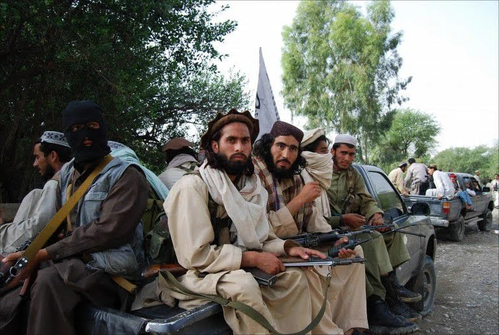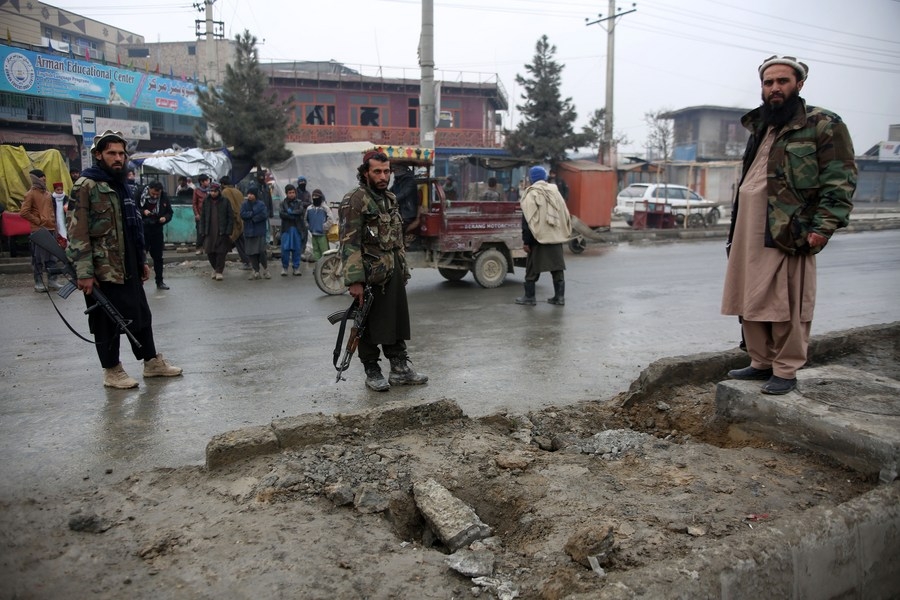Some analysts, suspecting US hand are of the view that the “resettlement” of terror groups will hit Russia and Central Asia hard as it can block some of the new routes linking Afghanistan with Central Asia…writes Rahul Kumar
The shifting of the Tehreek-e-Taliban (TTP) fighters to the northern areas of Afghanistan from the Af-Pak border districts by the Taliban administration has caused both confusion and fear.
The decision to relocate the TTP fighters, also called the Pakistani Taliban, and their families is mired in mystery. Many analysts have said the US persuaded the Taliban to relocate the fighters while others point out that Beijing is behind the shift of the fighters in a bid to bring peace to Pakistan, where it has invested billions of dollars in rail, road, power, infrastructure and port projects.
US President Joe Biden’s off-the-cuff remarks that “…Al Qaeda will not be there [in Afghanistan], I said that we will get help from the Taliban…” has also triggered speculation that the US is in some kind of a secret deal with the Taliban.
Some analysts, suspecting US hand are of the view that the “resettlement” of terror groups will hit Russia and Central Asia hard as it can block some of the new routes linking Afghanistan with Central Asia, including the one radiating from the Iran’s Indian Ocean port of Chabahar.
Northern Afghanistan is on the doorstep of Uzbekistan, separated by the Amu Darya river. The Hairatan bridge, also called the Afghanistan–Uzbekistan Friendship Bridge, over the Amu Darya links Afghanistan with Uzbekistan.

The Taliban apparently has a plan to resettle the TTP and others in the area by constructing a canal that will draw water from the Amu Darya to sprout agriculture in the area. Pakistan has reportedly promised to provide agricultural equipment to the resettled fighters in a bid to wean them from terror activities on its soil.
So far, the Taliban government in Kabul has not provided any clarity besides its initial statements that it will be relocating the fighters from the Durand Line – the contested border that separates Afghanistan from Pakistan, in a bid to assure Islamabad that its people are not behind the attacks on Pakistan’s security forces. With the government in Kabul linked closely to the Pakistani Taliban, ministers in Islamabad have been alleging for many months that Afghanistan-based fighters are creating unprecedented violence in Pakistan’s provinces of Khyber Pakhtunkhwa and Balochistan in a bid to create a Sharia-compliant country.
This has created much bad blood between the two nations.
Once reports began trickling in of 300 fighters having been relocated along with heavy weapons and vehicles to north Afghanistan’s Takhar province, which lies on the border with Tajikistan, the Taliban denied the reports. On its part, Pakistan too has not uttered a word on the relocation of the TTP fighters, most of whom are Pashtuns, from its borders.
In an ethnically-diverse Afghanistan, many groups have already voiced fears that the relocation of well-trained militants to the northern regions will cause ethnic tensions within the country. The ethnic communities feeling uncomfortable include the Hazaras, the Tajiks and the Persian speaking communities.
The Hasht-e-Subh daily has reported that the transfer of such men close to central Asian borders is likely to destabilise the CAR countries and spread radicalism and fundamentalist ideas in the region. It adds that the TTP cadre is being relocated after an agreement between Pakistan and Afghanistan.
The daily says: “Countries such as Uzbekistan, Tajikistan, and Turkmenistan, which share borders with Afghanistan, have deployed additional troops to secure their borders. The Collective Security Treaty Organization (CSTO) has also convened multiple meetings to address the insecurity in Afghanistan and the risk of the crisis spreading to Central Asia…”
On the other hand, reports say that during the trilateral Foreign Ministers’ conference held in Islamabad on May 6, 2023, China pressed Afghanistan to understand Pakistan’s concerns that Kabul act against the TTP. The trilateral was one of those few events for which Taliban Foreign Minister Amir Khan Muttaqi was allowed by the UN to travel to Pakistan.
The Middle East Media Research Institute (MEMRI) says that it was after the meetings between Chinese Foreign Minister Qin Gang, Pakistani Foreign Minister Bilawal Bhutto, and the Taliban’s Muttaqi, that the big decision to relocate the TTP fighters was taken by the Taliban government.

A possible indication about decisions regarding the TTP fighters comes from the joint statement.
The statement read: “The three sides stressed on the need of not allowing any individual, group or party, including the Tehreek-e-Taliban Pakistan (TTP), the Eastern Turkestan Islamic Movement (ETIM), etc., to use their territories to harm and threaten regional security and interests, or conduct terrorist actions and activities. All three sides underscored the need to refrain from intervening in the internal affairs of Afghanistan, and to promote Afghan peace, stability, and reconstruction.”
Why China seems to be brokering peace between the two warring governments is that it wants its investments in Pakistan, mainly the China Pakistan Economic Corridor (CPEC) to prosper and also be able to extend it to Afghanistan. China has long espoused interest in the rare minerals that Afghanistan’s mountains hold, which Beijing has not been able to mine earlier due to the American presence and lately due to the unstable security situation in the two neighbouring countries.
How the results of the relocation of TTP fighters from Af-Pak borders pans out may be known after a few months. It sounds likely that China is looking at some kind of rapprochement between the governments of two South Asian nations to further its own interests – get the terrorist groups off Pakistan’s back, thereby, protect its economic interests and also keep Xinjiang at an arm’s length from the Afghanistan-based terror groups.














